If non-cricketing commercial occupation is a significant part of a person’s overall income and the loss of this endangers honouring one’s commitments: Ashis Ray
Ashis Ray
Batting, emphasised Ian Chappell, is about “watching” the ball. This means not only focussing your eyes on the leather and seam, but also concentrating your mind on these. Batsmen who are able to accomplish this challenging co-ordination are generally the more successful.
If the sharpness of the eyes falters, which is inevitable after a certain age, directing the brain to the task becomes more important, together with dipping into experience. None of this works, though, if the system is distracted by extraneous elements, which is what has happened to the Indian wielders of the willow.
These days, there is so much at stake, financially, if an Indian cricketer doesn’t perform, that the consequences of failure have become a major headache for them. It is not that they are engaging in non-cricketing commercial activities at the cost of their cricket. To say so, is not to grasp the nettle. Indeed, the gainful deviation from the game when there are no on-field duties underway or imminent (and this includes playing for your state or zone) can be therapeutic.
However, if the non-cricketing commercial occupation is a significant or greater part of a person’s overall income and the loss of this endangers honouring one’s commitments — mortgage, car loan, children’s education, family healthcare and such like — and drastically impairs one’s lifestyle, then it could be a considerable concern. The volatility of the situation is amply demonstrated by companies pulling advertisements featuring cricketers every time they disappoint and consumers become hostile towards them.
Few human beings are immune to such unnerving fluctuations. The ability to think on one’s feet — absolutely essential in international sport — can be severely impaired if the mind is weighed down by worries. This is what happened to the Indians in the World Cup, and was a critical reason for their under-achievement.
(It is another matter that ordinary cricketers have been over rewarded. But that they’ve got accustomed to a load of luxuries, it’s painful to adjust to austerity.)
The problem can only be solved by reducing a player’s reliance on earnings from endorsements and other pursuits. A senior Indian cricketer is said to rake in about $440,000 and a relative newcomer around $220,000 per annum respectively from their central contracts and match fees. These are handsome take-home pays compared to most other Indians and to the cost of living in the country. However, the basic remuneration of an England cricketer is close to $500,000 and if one argues that there is more money in Indian cricket than anywhere else, then there is a case for enhancing the Indian players’ returns or the tenure of their agreements, thereby increasing their security and diluting their dependence on disbursements from outside the game.
The president of the Board of Control for Cricket in India (BCCI), Sharad Pawar, and his apparent deputy, IS Bindra, have blamed Indian media for erroneously creating a hype that India would win the World Cup and, thereby, according to them, instigating the public backlash after India’s premature exit from the tournament. It is undoubtedly true that a section of Indian media are guilty of this charge. The disinformation that wickets in the West Indies would be slow turners and favour the Indians was diabolical. Even if that were the case, India were by no means favourites and pandering to wishful thinking of the uninitiated was wrong. But are Messrs Pawar and Bindra trying to say that elimination at the preliminary stage, defeat to Bangladesh, were par for the course?
One being a politician and the other a retired bureaucrat, they are past masters at spin doctoring. They are, clearly, attempting to deflect attention from their “honorary” selves, lest angry cricket fans train their guns at them. It would be a travesty of justice if they were allowed to get away from not announcing transference of executive responsibilities to expert and professional management within a time bound period.
Ashis Ray is author of the recently launched “One-Day Cricket: The Indian Challenge” (Harper Collins), which can be bought online on www.ians.in
![submenu-img]() Big update on Pakistan's first-ever Moon mission and it has this China connection...
Big update on Pakistan's first-ever Moon mission and it has this China connection...![submenu-img]() 2024 Maruti Suzuki Swift officially teased ahead of launch, bookings open at price of Rs…
2024 Maruti Suzuki Swift officially teased ahead of launch, bookings open at price of Rs…![submenu-img]() 'Kyun bhai kyun?': Sheezan Khan slams actors in Sanjay Leela Bhansali's Heeramandi, says 'nobody could...'
'Kyun bhai kyun?': Sheezan Khan slams actors in Sanjay Leela Bhansali's Heeramandi, says 'nobody could...'![submenu-img]() Meet Jai Anmol, his father had net worth of over Rs 183000 crore, he is Mukesh Ambani’s…
Meet Jai Anmol, his father had net worth of over Rs 183000 crore, he is Mukesh Ambani’s…![submenu-img]() Shooting victim in California not gangster Goldy Brar, accused of Sidhu Moosewala’s murder, confirm US police
Shooting victim in California not gangster Goldy Brar, accused of Sidhu Moosewala’s murder, confirm US police![submenu-img]() DNA Verified: Is CAA an anti-Muslim law? Centre terms news report as 'misleading'
DNA Verified: Is CAA an anti-Muslim law? Centre terms news report as 'misleading'![submenu-img]() DNA Verified: Lok Sabha Elections 2024 to be held on April 19? Know truth behind viral message
DNA Verified: Lok Sabha Elections 2024 to be held on April 19? Know truth behind viral message![submenu-img]() DNA Verified: Modi govt giving students free laptops under 'One Student One Laptop' scheme? Know truth here
DNA Verified: Modi govt giving students free laptops under 'One Student One Laptop' scheme? Know truth here![submenu-img]() DNA Verified: Shah Rukh Khan denies reports of his role in release of India's naval officers from Qatar
DNA Verified: Shah Rukh Khan denies reports of his role in release of India's naval officers from Qatar![submenu-img]() DNA Verified: Is govt providing Rs 1.6 lakh benefit to girls under PM Ladli Laxmi Yojana? Know truth
DNA Verified: Is govt providing Rs 1.6 lakh benefit to girls under PM Ladli Laxmi Yojana? Know truth![submenu-img]() Remember Heyy Babyy's cute 'Angel' Juanna Sanghvi? 20 year-old looks unrecognisable now, fans say 'her comeback will...'
Remember Heyy Babyy's cute 'Angel' Juanna Sanghvi? 20 year-old looks unrecognisable now, fans say 'her comeback will...'![submenu-img]() In pics: Arti Singh stuns in red lehenga as she ties the knot with beau Dipak Chauhan in dreamy wedding
In pics: Arti Singh stuns in red lehenga as she ties the knot with beau Dipak Chauhan in dreamy wedding![submenu-img]() Actors who died due to cosmetic surgeries
Actors who died due to cosmetic surgeries![submenu-img]() See inside pics: Malayalam star Aparna Das' dreamy wedding with Manjummel Boys actor Deepak Parambol
See inside pics: Malayalam star Aparna Das' dreamy wedding with Manjummel Boys actor Deepak Parambol ![submenu-img]() In pics: Salman Khan, Alia Bhatt, Rekha, Neetu Kapoor attend grand premiere of Sanjay Leela Bhansali's Heeramandi
In pics: Salman Khan, Alia Bhatt, Rekha, Neetu Kapoor attend grand premiere of Sanjay Leela Bhansali's Heeramandi![submenu-img]() DNA Explainer: Why Harvey Weinstein's rape conviction was overturned, will beleaguered Hollywood mogul get out of jail?
DNA Explainer: Why Harvey Weinstein's rape conviction was overturned, will beleaguered Hollywood mogul get out of jail?![submenu-img]() What is inheritance tax?
What is inheritance tax?![submenu-img]() DNA Explainer: What is cloud seeding which is blamed for wreaking havoc in Dubai?
DNA Explainer: What is cloud seeding which is blamed for wreaking havoc in Dubai?![submenu-img]() DNA Explainer: What is Israel's Arrow-3 defence system used to intercept Iran's missile attack?
DNA Explainer: What is Israel's Arrow-3 defence system used to intercept Iran's missile attack?![submenu-img]() DNA Explainer: How Iranian projectiles failed to breach iron-clad Israeli air defence
DNA Explainer: How Iranian projectiles failed to breach iron-clad Israeli air defence![submenu-img]() 'Kyun bhai kyun?': Sheezan Khan slams actors in Sanjay Leela Bhansali's Heeramandi, says 'nobody could...'
'Kyun bhai kyun?': Sheezan Khan slams actors in Sanjay Leela Bhansali's Heeramandi, says 'nobody could...'![submenu-img]() Meet actress who once competed with Aishwarya Rai on her mother's insistence, became single mother at 24, she is now..
Meet actress who once competed with Aishwarya Rai on her mother's insistence, became single mother at 24, she is now..![submenu-img]() Makarand Deshpande says his scenes were cut in SS Rajamouli’s RRR: ‘It became difficult for…’
Makarand Deshpande says his scenes were cut in SS Rajamouli’s RRR: ‘It became difficult for…’![submenu-img]() Meet 70s' most daring actress, who created controversy with nude scenes, was rumoured to be dating Ratan Tata, is now...
Meet 70s' most daring actress, who created controversy with nude scenes, was rumoured to be dating Ratan Tata, is now...![submenu-img]() Meet superstar’s sister, who debuted at 57, worked with SRK, Akshay, Ajay Devgn; her films earned over Rs 1600 crore
Meet superstar’s sister, who debuted at 57, worked with SRK, Akshay, Ajay Devgn; her films earned over Rs 1600 crore![submenu-img]() IPL 2024: Spinners dominate as Punjab Kings beat Chennai Super Kings by 7 wickets
IPL 2024: Spinners dominate as Punjab Kings beat Chennai Super Kings by 7 wickets![submenu-img]() Australia T20 World Cup 2024 squad: Mitchell Marsh named captain, Steve Smith misses out, check full list here
Australia T20 World Cup 2024 squad: Mitchell Marsh named captain, Steve Smith misses out, check full list here![submenu-img]() SRH vs RR, IPL 2024: Predicted playing XI, live streaming details, weather and pitch report
SRH vs RR, IPL 2024: Predicted playing XI, live streaming details, weather and pitch report![submenu-img]() SRH vs RR IPL 2024 Dream11 prediction: Fantasy cricket tips for Sunrisers Hyderabad vs Rajasthan Royals
SRH vs RR IPL 2024 Dream11 prediction: Fantasy cricket tips for Sunrisers Hyderabad vs Rajasthan Royals ![submenu-img]() IPL 2024: Marcus Stoinis, Mohsin Khan power Lucknow Super Giants to 4-wicket win over Mumbai Indians
IPL 2024: Marcus Stoinis, Mohsin Khan power Lucknow Super Giants to 4-wicket win over Mumbai Indians![submenu-img]() Viral video: Man's 'peek-a-boo' moment with tiger sends shockwaves online, watch
Viral video: Man's 'peek-a-boo' moment with tiger sends shockwaves online, watch![submenu-img]() Viral video: Desi woman's sizzling dance to Jacqueline Fernandez’s ‘Yimmy Yimmy’ burns internet, watch
Viral video: Desi woman's sizzling dance to Jacqueline Fernandez’s ‘Yimmy Yimmy’ burns internet, watch![submenu-img]() Viral video: Men turn car into mobile swimming pool, internet reacts
Viral video: Men turn car into mobile swimming pool, internet reacts![submenu-img]() Meet Youtuber Dhruv Rathee's wife Julie, know viral claims about her and how did the two meet
Meet Youtuber Dhruv Rathee's wife Julie, know viral claims about her and how did the two meet![submenu-img]() Viral video of baby gorilla throwing tantrum in front of mother will cure your midweek blues, watch
Viral video of baby gorilla throwing tantrum in front of mother will cure your midweek blues, watch

























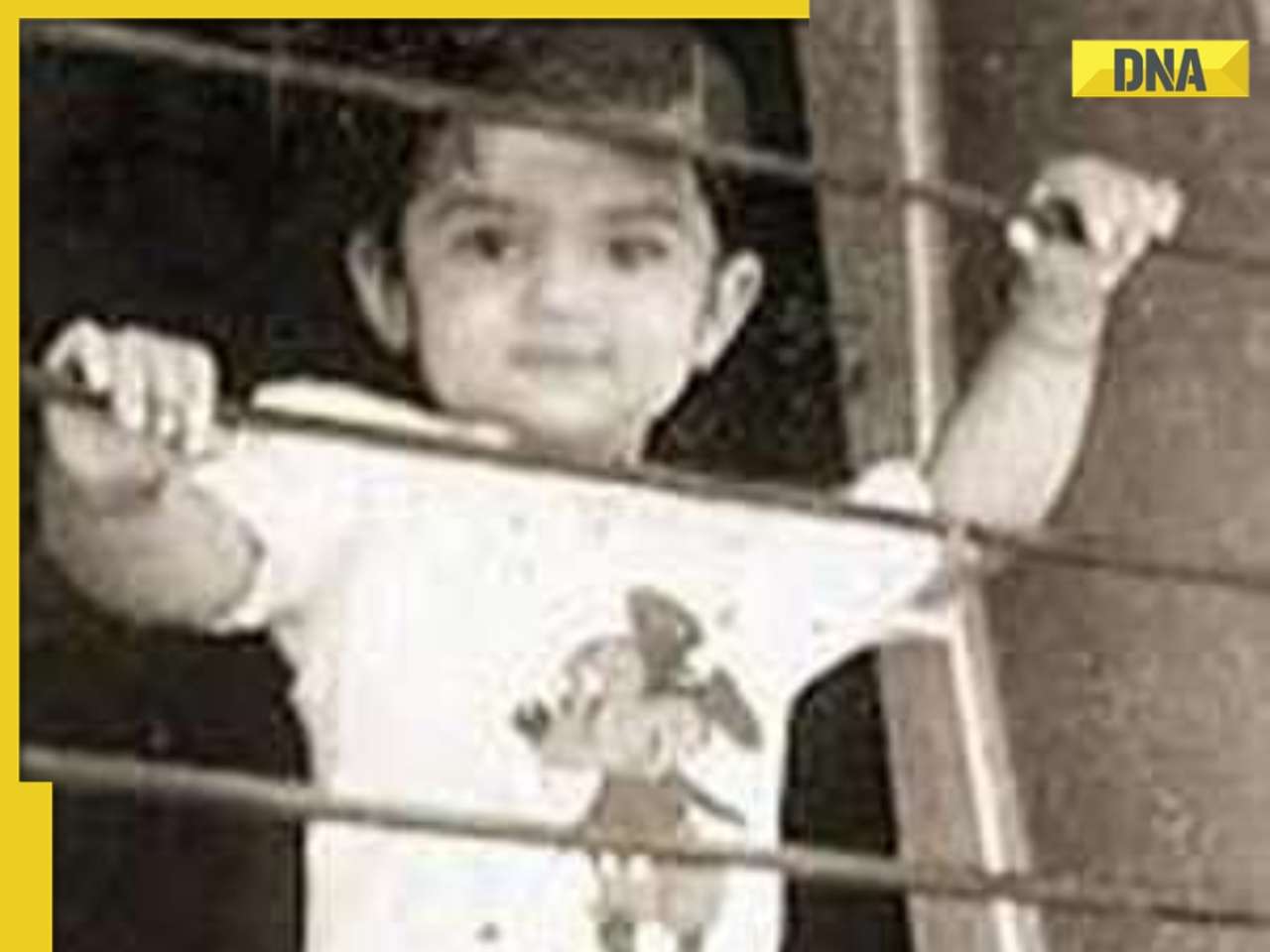
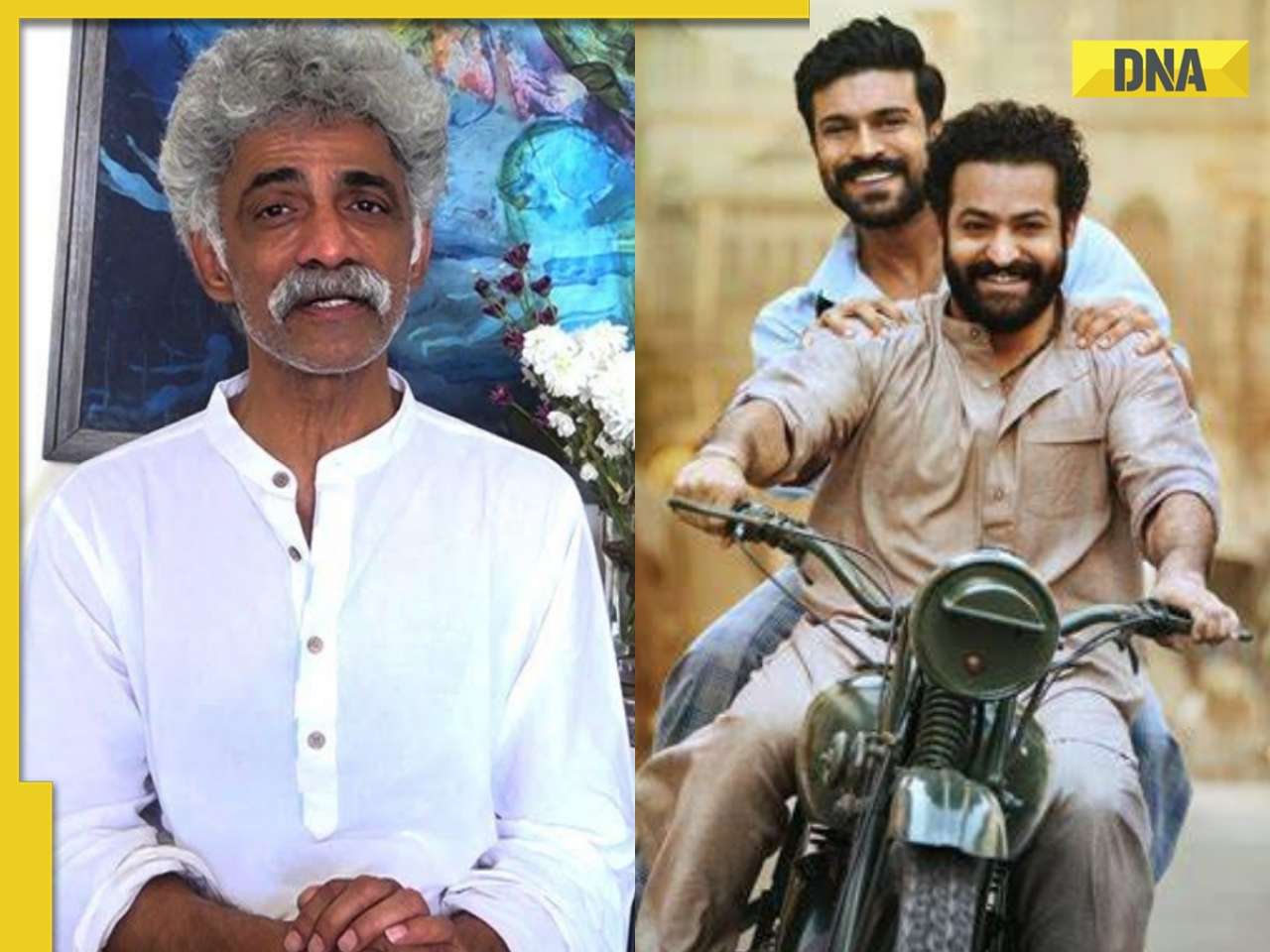


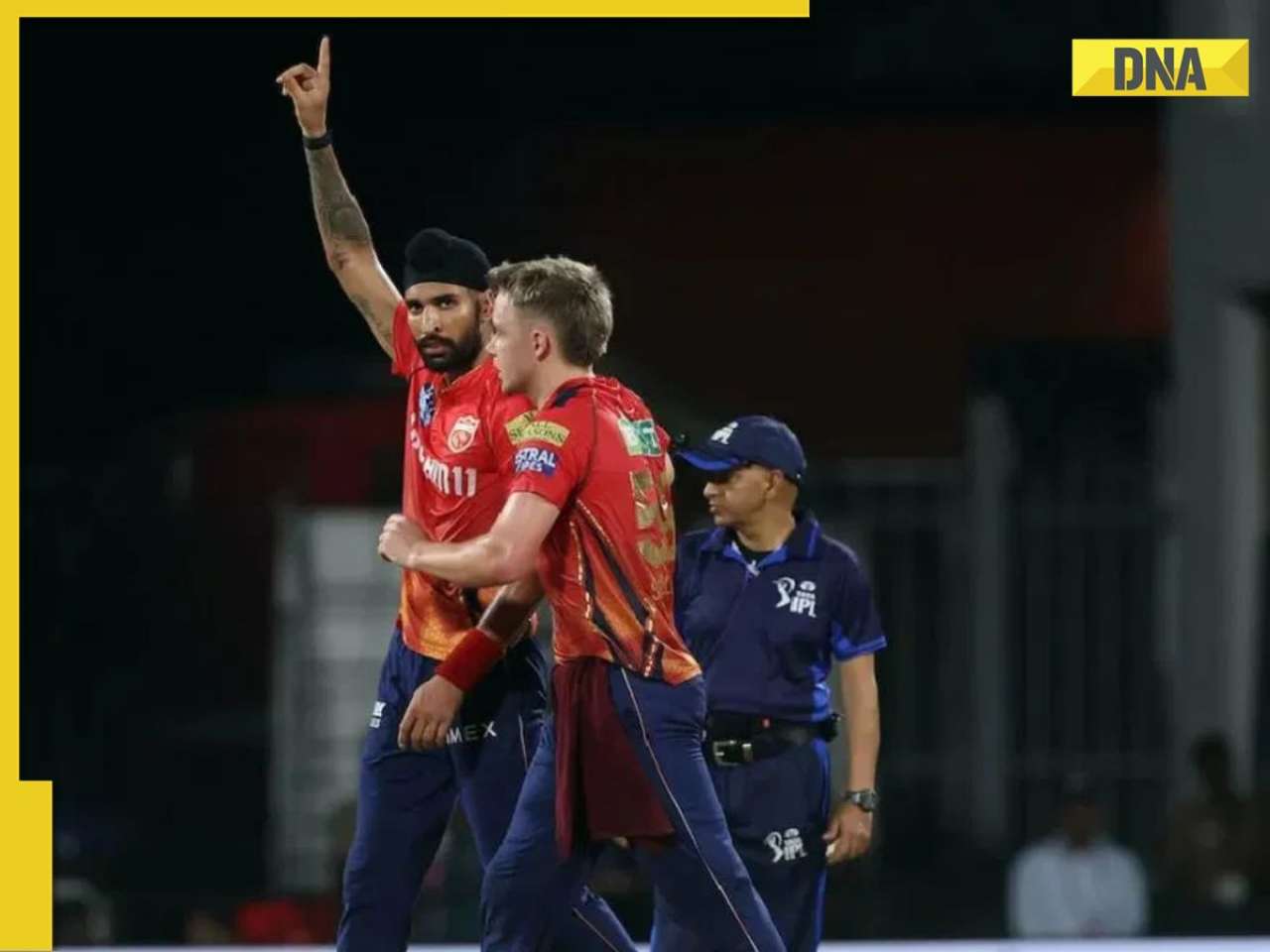
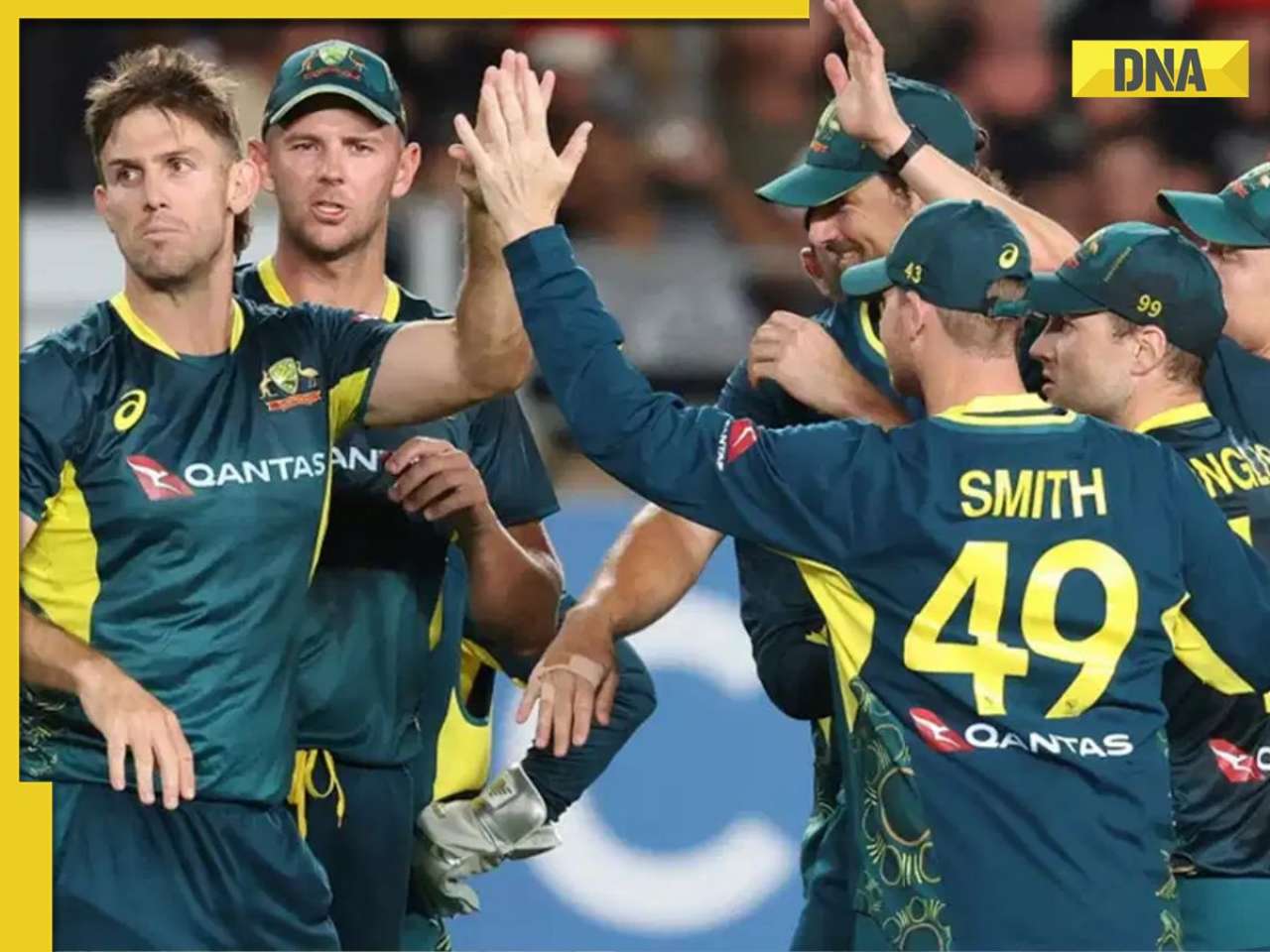
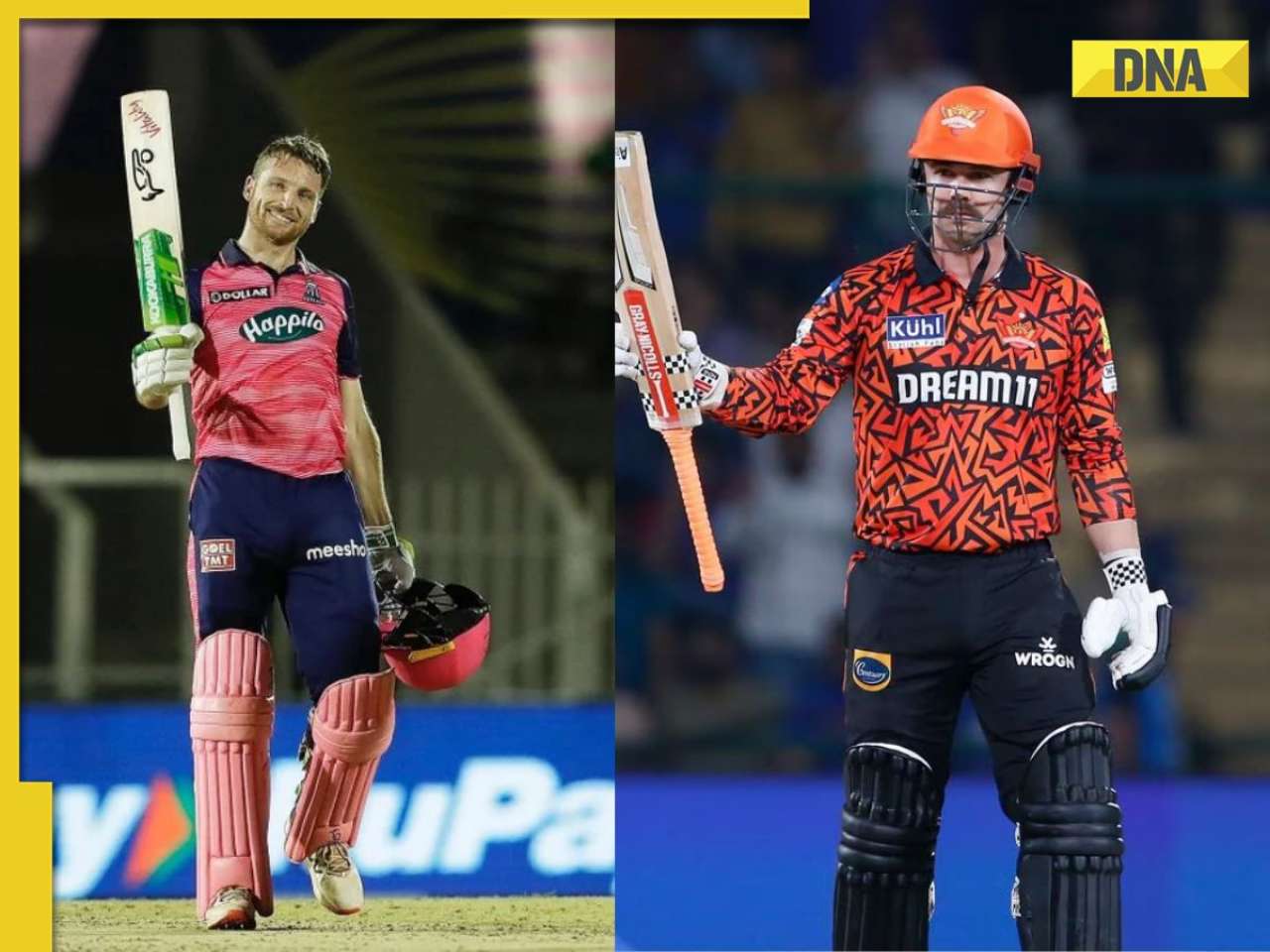
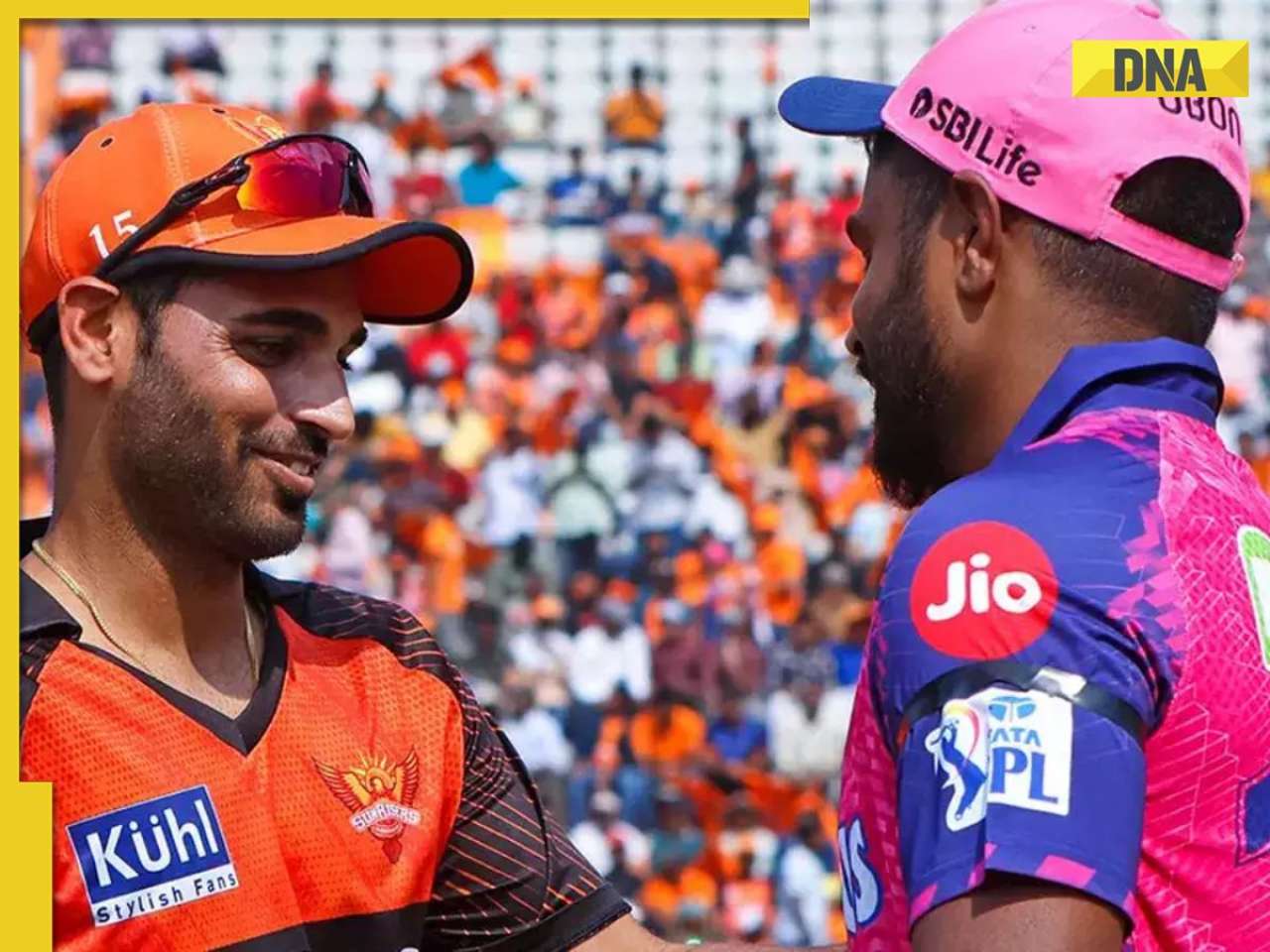












)
)
)
)
)
)